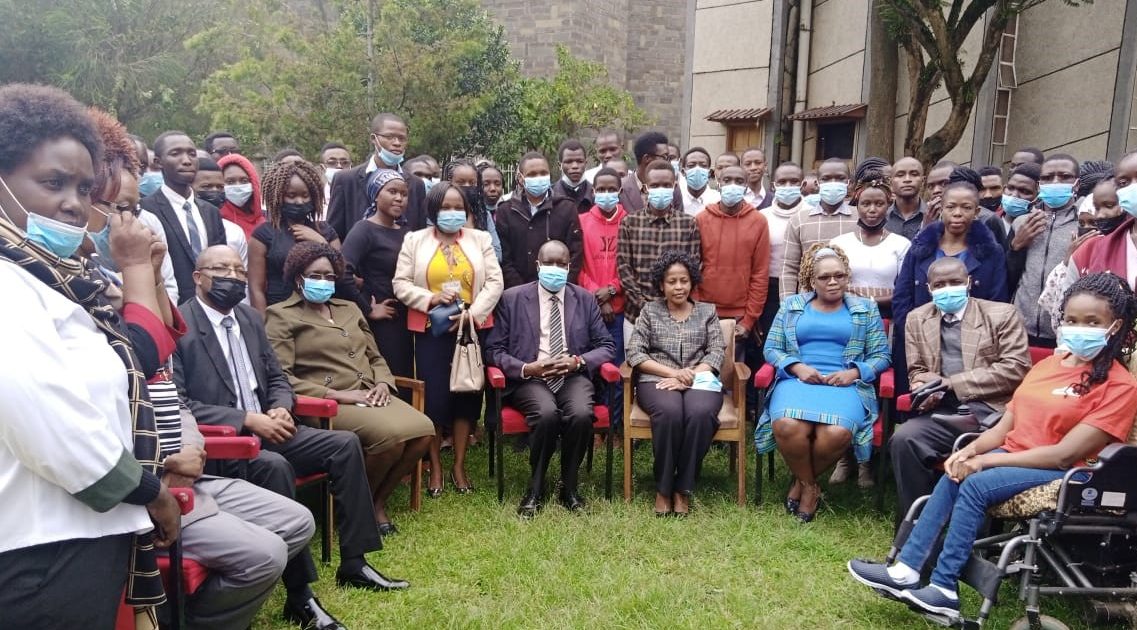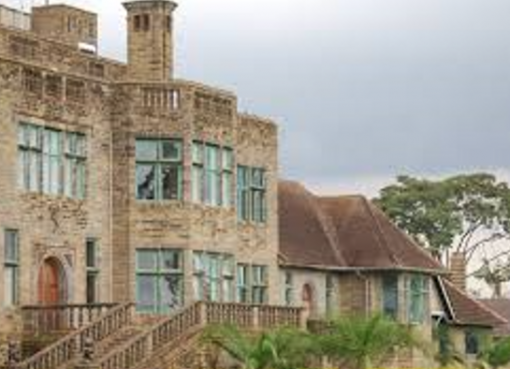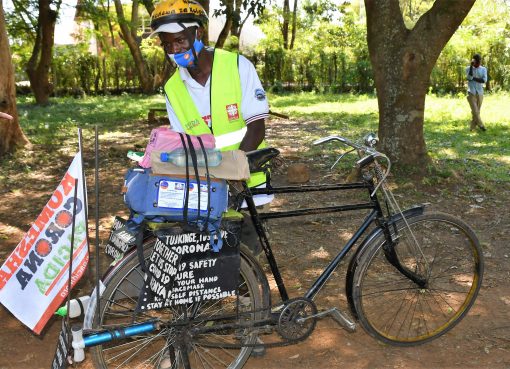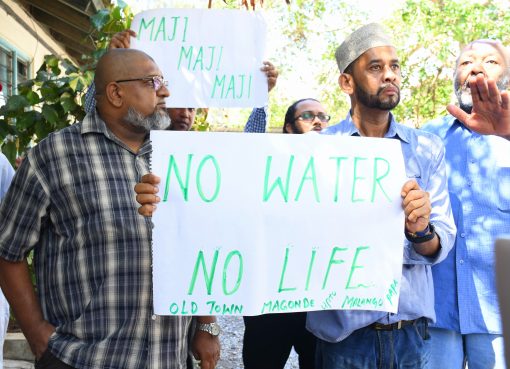Egerton University has unveiled an initiative designed to make counselling services more user friendly and accessible to students.
Acting Deputy Vice-Chancellor in charge of Academic Affairs Professor Julius Kipkemboi indicated that through the programme 100 peer counsellors and 4 administrative staff members had received intensive training to offer the service.
Speaking when he launched the team at the Education Theatre within the Njoro Main Campus, Professor Kipkemboi noted that most students were experiencing psychological distress and were suffering from the effects of issues or challenges that have been bottled up for a long time, and the situation might have been worsened by the fact that they had no one to talk to.
He said one of the main goals of the programme is to increase uptake of the services by students and normalise the presence of counsellors in students’ lives. The Acting Vice Chancellor noted that mental health issues in learning institutions, if not effectively handled, may result in poor academic performance, low self-esteem, mental illnesses, depression, suicidal tendencies, student unrest, hooliganism and vandalism of property.
“Depression cases have been on the rise, suicide incidents and attempts by the young and the old have also been on the rise. In addition, alcohol and substance abuse is used as a coping mechanism among many other issues.
The training is timely considering the notable increase in cases of mental illnesses among students caused by the economic hardships brought about by the effects of the Covid-19 pandemic.
“Our lives have been greatly interrupted, it’s not business as usual. Our daily work and school routine is not the same any more, exposing many to tremendous stress,” Professor Kipkemboi pointed out.
“A student is most likely to first approach, share and ask a friend for help when faced with a difficulty. This is because they feel that a friend is closer, safer and can better understand his or her situation than anyone else. With this in mind, we rolled out this supervised student peer-counselling program.
The presence of a student peer counsellor at residence halls means students can talk to a counsellor without having to leave the building which reduces the stigma that surrounds seeking counselling,” noted the Acting Deputy Vice Chancellor.
The programme is sponsored by the TAGDev initiative which is a partnership between The MasterCard Foundation, Egerton University and Regional Universities Forum for Capacity Building in Agriculture (RUFORUM).
Professor Kipkemboi indicated that the student Peer Counsellors had been trained on mental health, basic counselling skills, alcohol and drug abuse, stress and stress management, self-esteem and self-awareness.
He added that they had also been equipped with skills in conflict management, sexuality, communication skills, life skills, loss and grief counselling, relationships, financial and time management, depression, academic challenges, Transformative Leadership, Ethical Issues in Counselling, among others.
The Acting Deputy Vice Chancellor was flanked by The Dean of Students, Professor Dolphin Odero Wanga, TAGDev programme Coordinator, Professor Nancy Mungai and Alumni Relations Coordinator Dr. Hillary Chakava.
Dr. Kipkemboi said universities and other institutions of learning were not an exception to mental health issues that are now a big concern in Kenya.
He added that the newly trained peer counsellors had been equipped with the necessary skills to enable them offer counselling to fellow students undergoing physical, emotional, psychological, social, spiritual and mental health challenges while on campus.
Also present were Deputy Deans of Students Dr. Lilian Nyagaya and Dr. Samuel Nyamweya and University Chaplain Reverend (Dr.) Samuel Nduati.
Professor Odero stated the students had been subjected to a competitive recruitment and rigorous vetting processes before undergoing training as Peer Counsellors.
She indicated that they have been trained in effective communication, listening skills, assertiveness, ethics of peer counselling and confidentiality.
“Each peer counsellor is trained on when to refer the person to a professional counsellor. Though they receive training, they are not certified counsellors.
Peer counsellors are students and can therefore understand what their colleagues might be going through. They help other students understand their own situations and get over them, these peer counsellors can become arbitrators in cases where students are involved in conflicts” added the Dean of Students.
Dr. Nyagaya indicated that the peer counsellors will help improve university management and student relations
“They have been trained to talk to their colleagues and ensure they open up on any issue as a way of guaranteeing activities run smoothly and effectively,” she indicated.
Dr. Chakava challenged the peer counsellors to be alert to emerging mental health issues brought about by excessive and addictive social media use.
Dr. Nyamweya noted that the team had been equipped with capacity to assist students in solving intrapersonal conflicts. He added “Intrapersonal conflicts can lead to poor decision making among students. Peer counsellors are students and can therefore understand what their colleagues might be going through. They will help other students understand their own situations and get over them.”
By Jane Ngugi and Hellen Kivaya





